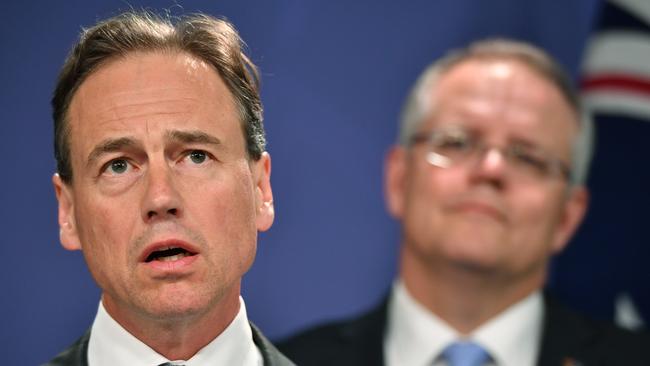Raids to hit rogue health insurers
Tough new powers granted to the ombudsman have put the health insurance industry on notice of closer scrutiny.

Health funds have been warned that investigators will raid their offices if there is a suspicion they have tried to cover up cases of members being misled or having their claims unfairly denied.
As insurance premiums continue to increase at a faster rate than inflation, and more Australians drop private hospital policies, there are lingering concerns about affordability, and complaints from members who find themselves without cover when they need it.
Under a package of reforms introduced by Health Minister Greg Hunt, the Private Health Insurance Ombudsman has been given the power to raid insurers and insurance brokers to resolve complaints.
Documents obtained by The Australian under Freedom of Information laws show the ombudsman’s office has already held meetings with industry representatives to explain its new powers.
The tough approach has been compared with the ombudsman’s oversight of about 20 law-enforcement agencies and their use of covert and intrusive methods.
“We expect to commence inspections in 2019, with the first reports completed by the end of the 2018-19 financial year,” the ombudsman’s office foreshadowed at a meeting at Sydney’s Sofitel Hotel.
Insurers have been warned they need to provide members with sufficient notice of planned policy changes. In some cases, more than 60 days’ notice is required, and the wide-ranging reforms — intended to help stabilise the industry — only add to the need for insurers to keep members informed.
Many insurers are already foreshadowing their April 1 changes, particularly the removal of natural therapies cover and the gradual introduction of new product categories. Mr Hunt announced the average premium increase of 3.25 per cent two weeks ago — a month ahead of schedule — but insurers still have to notify individual policyholders.
While investigators can access health fund recordings of phone calls with members, the ombudsman’s office told a parliamentary committee it was important that other evidence not be destroyed.
“The office is already aware there are a variety of practices and procedures adopted by health insurers with respect to the storing, reporting and destruction of consumer records of health insurer advice, some of which result in records not being readily accessible or fulsome when required to deal with a complaint,” it said.
The new powers are being put into effect after a long-running court battle between the Australian Competition & Consumer Commission and Medibank over detrimental policy changes resulted in no punishment for the insurer.
The ACCC accused Medibank of failing to adequately notify members about changes to its coverage of in-hospital pathology and radiology services. After losing its Federal Court case in 2017, the ACCC appealed to the full bench of the court and was again unsuccessful last month, but not before Medibank’s conduct came under fire from judge Jonathan Beach.
“Harsh the conduct may have been, unfair the conduct may have been, but that is not sufficient to establish statutory unconscionability,” Justice Beach said.
The ACCC is considering its options, but a Medibank spokesman said the insurer had sought to improve its relationship with members since the changes.
Consumers Health Forum chief executive Leanne Wells was disappointed by the court outcome and hoped the ombudsman’s new powers would better support members. She said the failure to keep members informed “denies them the fundamental right to shop around”.
Last year, The Australian revealed the largest health fund, Bupa, was planning to remove its medical gap scheme from public hospitals and some private facilities and also downgrade the cover of a third of its members.
Mr Hunt asked the ombudsman to investigate, prompting Bupa to alter its plans and commit to improving how members were notified of such changes. The ombudsman had questioned why Bupa communicated the policy downgrades to members under a section headed “Improving the value of your cover”.
Rachel David, head of insurance lobby Private Healthcare Australia, said the planned clarification of policy offerings through new gold, silver, bronze and basic categories, and simpler documentation, would hopefully alleviate much of the current concern.
“Many of the challenges consumers face when navigating the private health system are a result of the complexity of the health system itself, rather than health funds acting to intentionally confuse people,” Dr David said.
The government has given the ombudsman’s office more funding and expects a reduction in complaints over time. A spokesman for the office said it would work with stakeholders on a framework and protocols to support the use of the powers but hoped insurers would continue to co-operate with investigations.




To join the conversation, please log in. Don't have an account? Register
Join the conversation, you are commenting as Logout